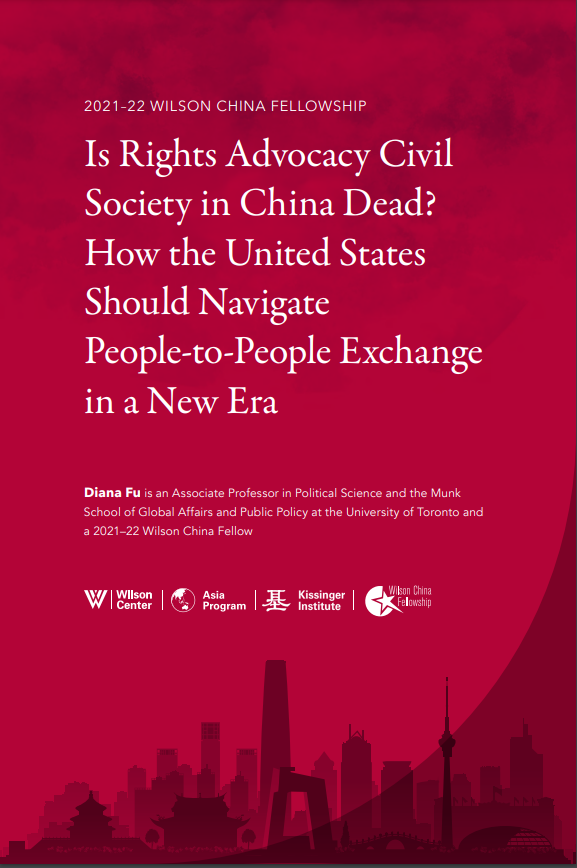
Is rights advocacy civil society in China dead? How the United States should navigate people-to-people exchange in a new era
Since Xi Jinping took power in 2012, advocacy-oriented civil society—those that press for rights associated with liberal democracies—in China has been placed under immense pressure. Based on synthesizing publicly available media articles and reports, this essay assesses whether rights advocacy civil society in China is effectively “dead” under the Xi Administration (2012-2022) and if and where opportunities still exist for people-to-people exchange. The essay argues that a key to analyzing the party-state’s response to advocacy civil society is to disaggregate two facets of threat: mobilizational and ideological. The former refers to civil society’s potential to threaten social stability through collective action while the latter refers to their ideas and values that threaten orthodoxy. In both Mainland China and in Hong Kong, rights advocacy organizations and networks have been amputated, but they are not “dead” in the sense of being permanently demolished. At the same time, the party-state has been actively re-molding educational and cultural institutions to ensure that the future generation of youth—a key pillar of civil society will be pro-CCP in their ideologies. Despite these developments, the essay identifies key issue-areas, actors, and institutions through which U.S. policymakers, U.S. civil society, and educational institutions can continue to engage with Chinese counterparts in a tense period and beyond.

Implications and Key Takeaways
For U.S. Policymakers:
- Foster a policy environment where civil society dialogue is actively encouraged as Track 2 diplomacy. Start with re-booting educational exchange programs with China such as the Fulbright Program and the Peace Corps.
- Strategically reframe programs to substitute “democracy promotion” rhetoric with substantive, non-ideological language such as “civic engagement” and “capacity bridging.”
- Hold congressional hearings on the status and development of civil society in Mainland China and in Hong Kong via the Congressional Executive Commission on China (CECC).
- Create an exit option for Hong Kong activists to seek accelerated asylum the United States.
- Support and dialogue with civil society activists from Mainland China residing in the diaspora community in the United States; expand funding and support for independent Chinese media outlets reaching the Chinese diaspora.
For U.S. Civil Society Actors and INGOs:
- U.S. foundations and philanthropic organizations should support and fund programs that facilitate youth-led exchange from Mainland China and Hong Kong to the United States and vice versa.
- Continue to share best practices among the donor community about adaptive strategies in authoritarian states as well as encourage best practices sharing between Chinese civil society organizations and INGOs.
For U.S. and Other Educational Institutions:
- Support academics and administrators in universities to receive scholars and students from Hong Kong and Mainland China who may no longer be able to teach or study in their home institutions.
- Educate administrators and faculty on understanding and responding to the 2020 Hong Kong National Security Law and its impacts on teaching and research in and on China.

